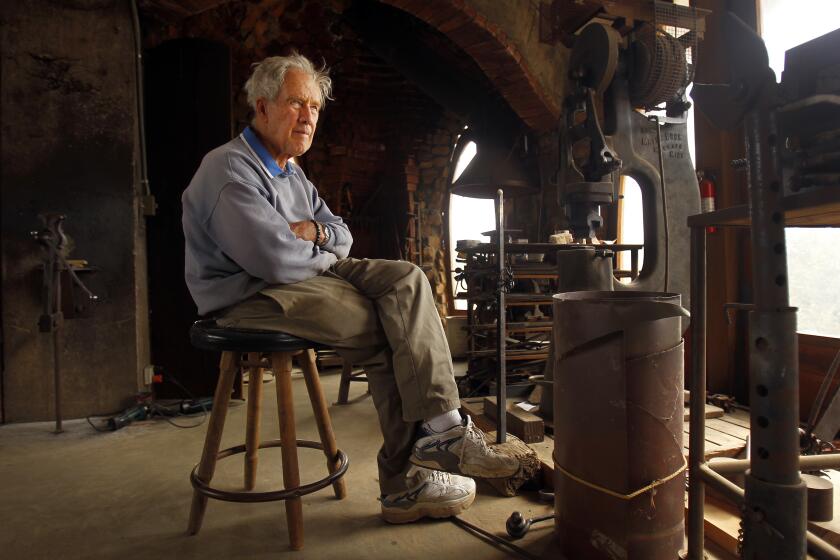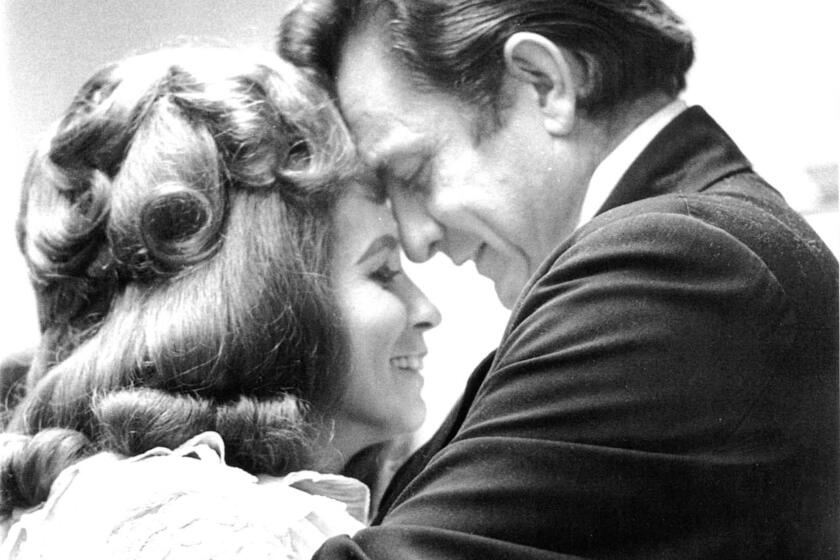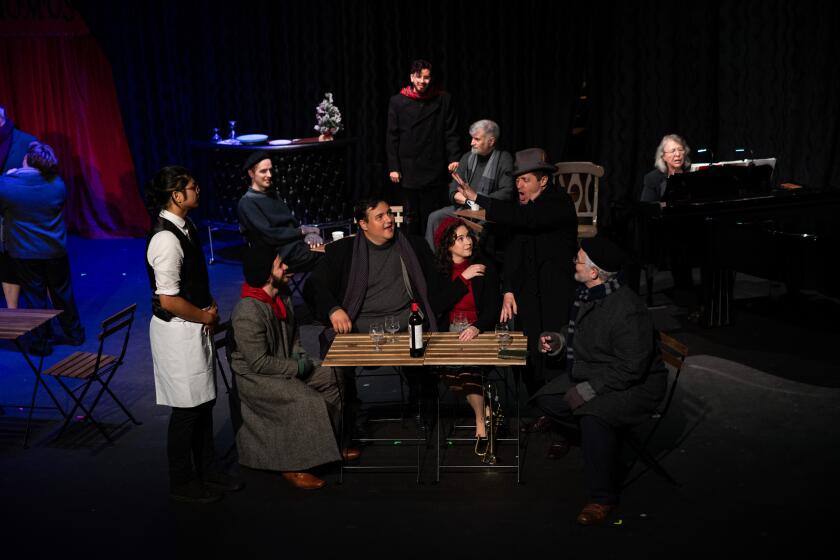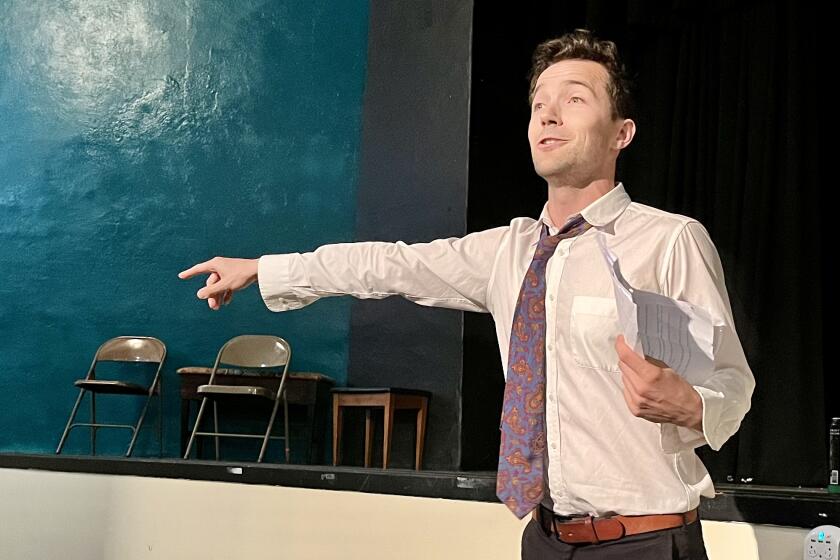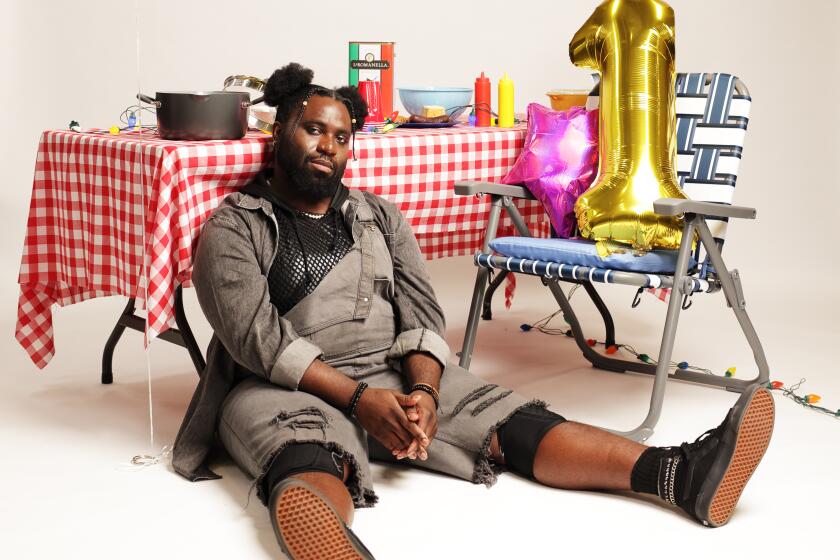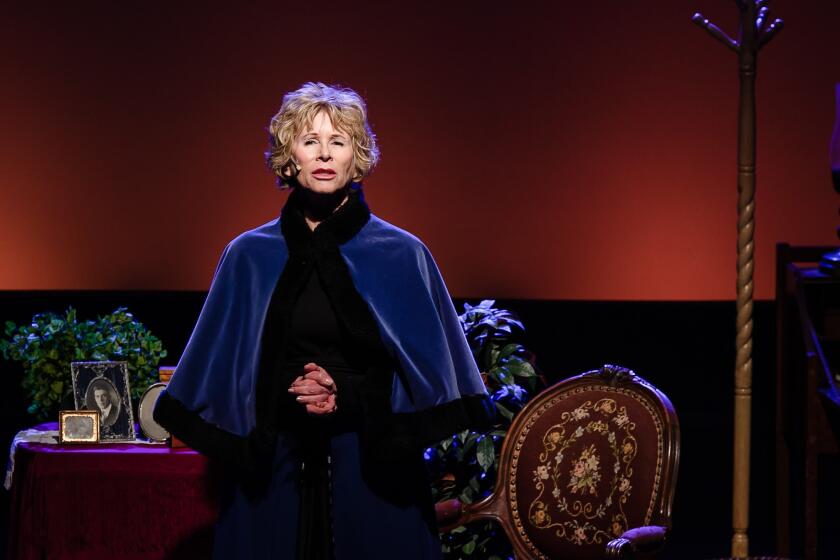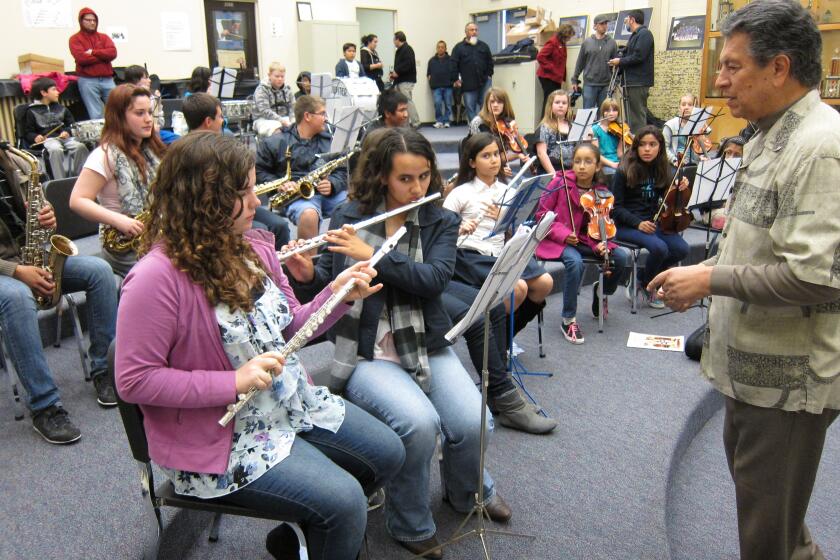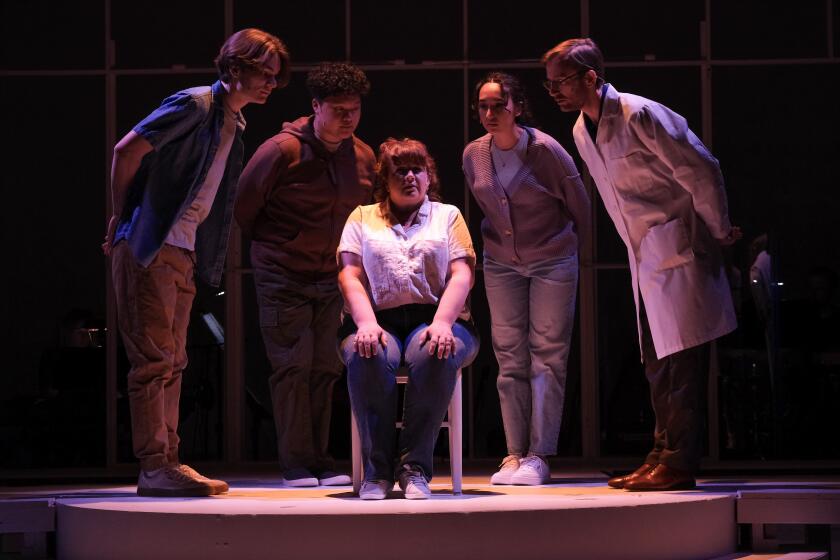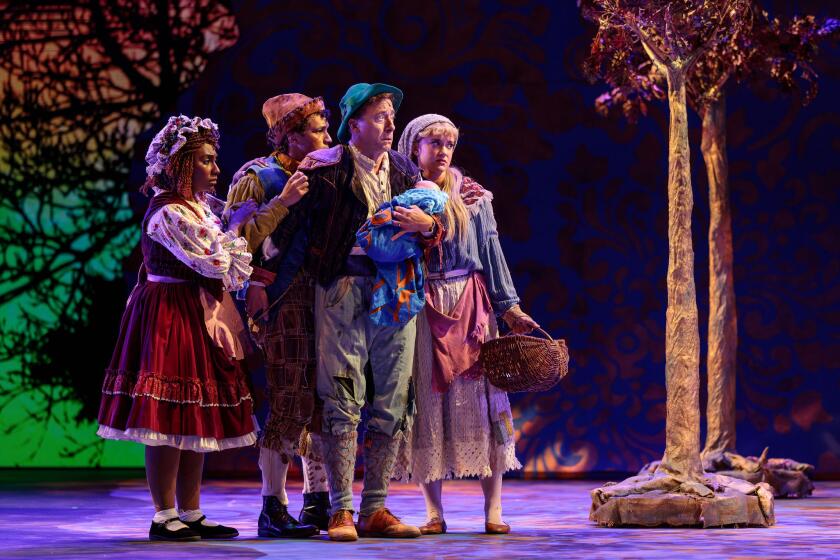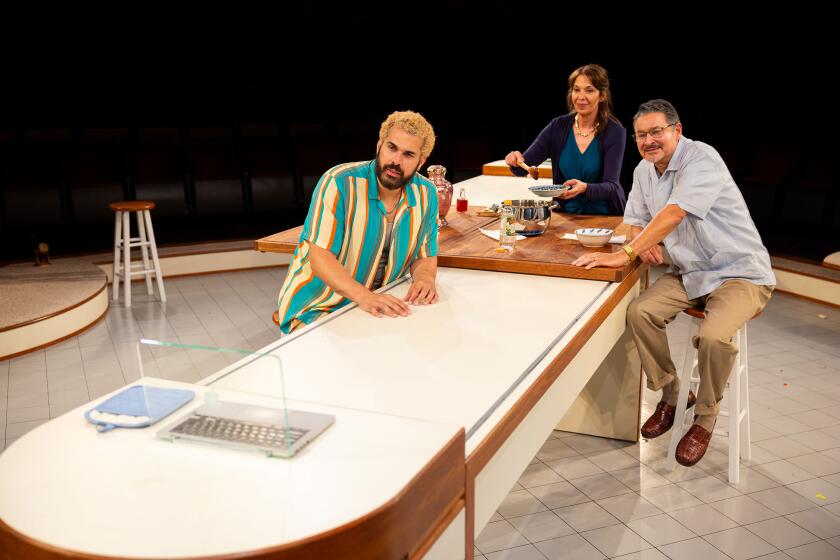Review: In La Jolla Playhouse’s entertaining ‘Hunter S. Thompson’ musical, the gonzo writer is a legend in his own mind
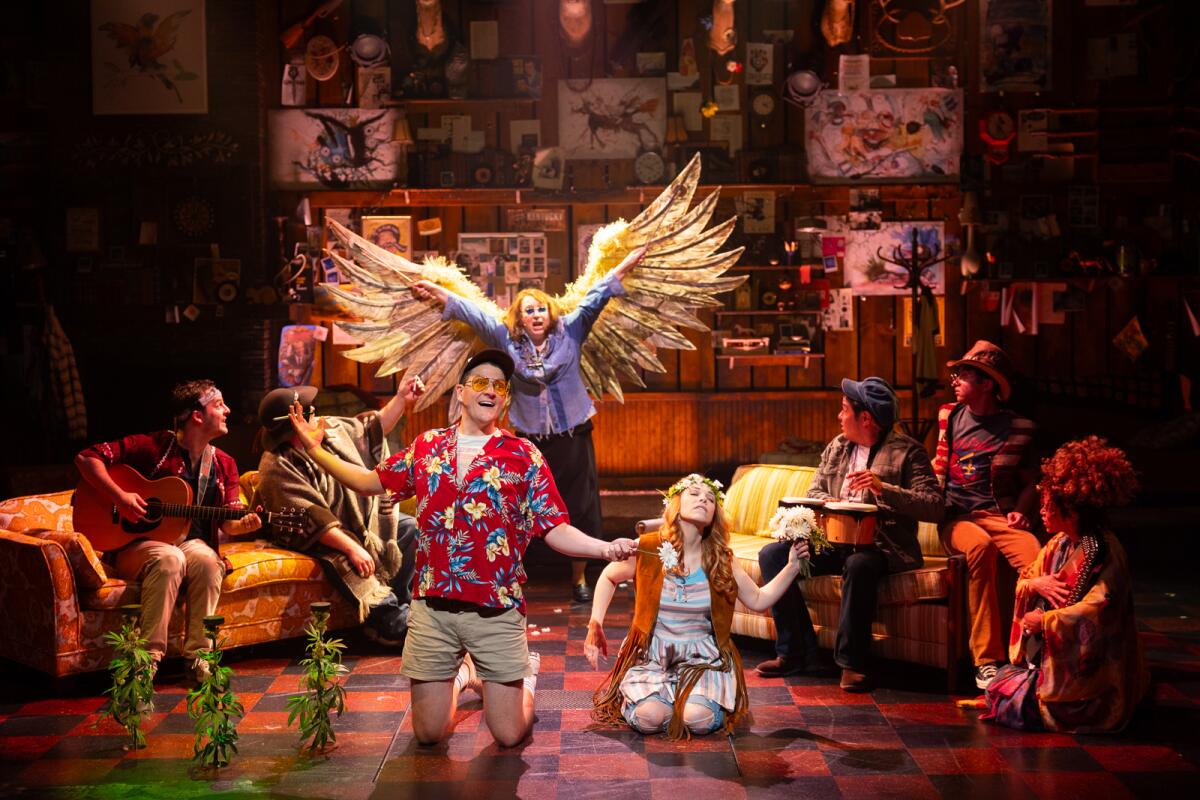
World-premiere Joe Iconis-Gregory S. Moss musical is a story about the infamous writer reassessing his legacy on the last day of his life
Hunter S. Thompson: The man. The myth. The legend.
All facets of the counterculture writer’s real and imagined life are explored onstage in Joe Iconis and Gregory S. Moss’ musical “The Untitled Unauthorized Hunter S. Thompson Musical,” which opened in its world premiere Sunday at La Jolla Playhouse.
To fans of Thompson’s visceral, idealistic, anti-Establishment and often drug-fueled writing, he was the hero of outsiders, liberals and “freaks” who he counted himself among. But this musical opens and closes on the day of Thompson’s 2005 suicide, with the unvarnished reality that despite his opinion of himself as the greatest American writer of the 20th century, he was mostly forgotten by then, and is even more so today.
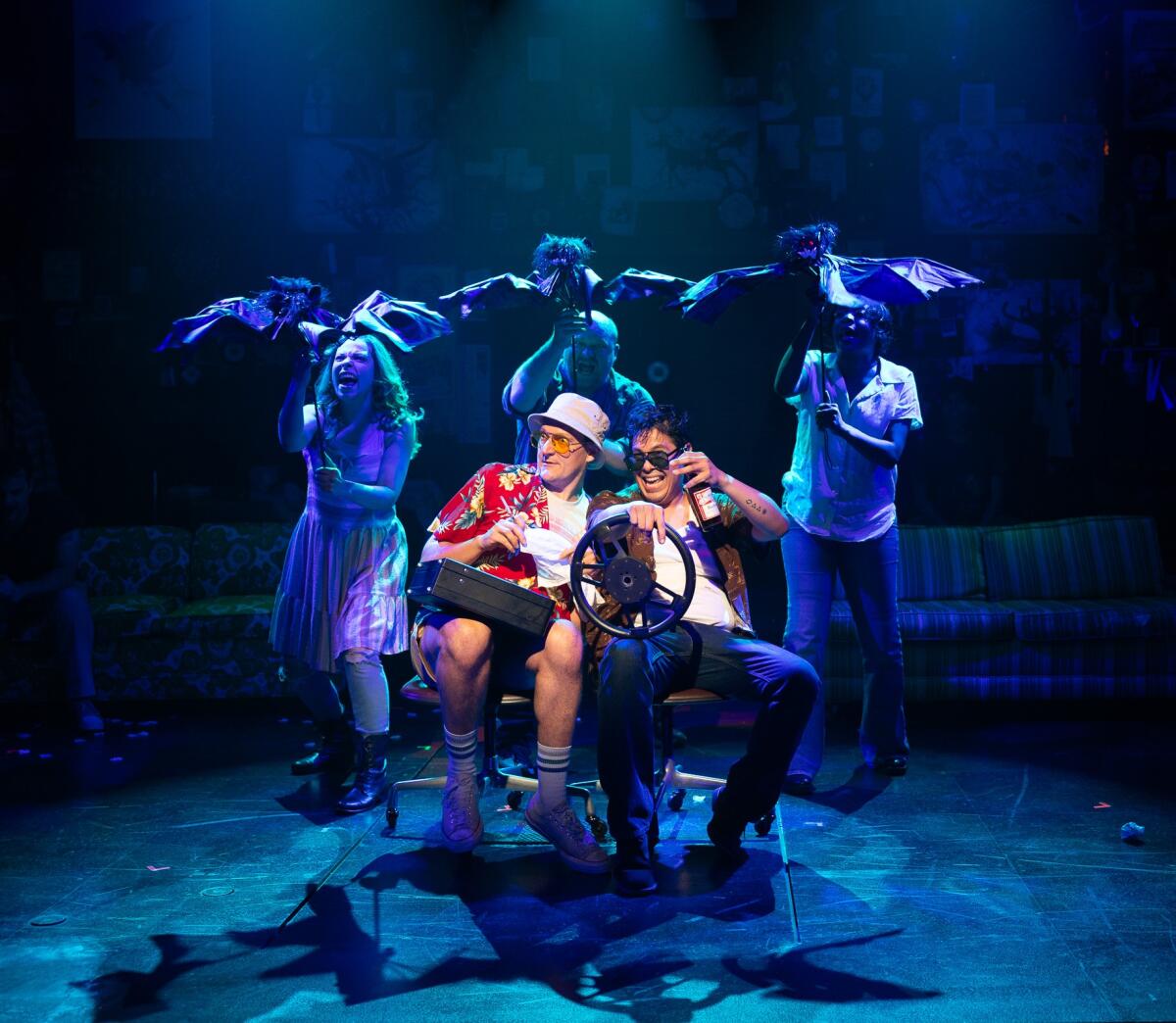
Tony-winner Gabriel Ebert thoroughly embodies Thompson — with his signature bucket hats, sunglasses, Hawaiian shirts and TarGard-filtered cigarettes — as a gangly, fiercely driven and uncomfortable-in-his-own-skin antihero who spends the first 30 years of his life finding his unique creative voice and the last 30 years squandering it and coasting on his fame.
Thompson is most famous for his “gonzo” writing, a stream-of-consciousness, drug-enhanced style of writing where he inserted himself into the center of the storytelling. He was also a famously unreliable narrator, so everything he wrote — and that the audience sees — is a mix of fact and fantasy.
On his final day, Thompson addresses the audience from the comically enormous gun- and clock-filled living room of his Colorado home (imaginatively designed with hidden surprises by Wilson Chin). Sitting on the mismatched couches around Thompson are all of the “demons” in his head — the talented ensemble of actors who will play his friends, family, fans, foes and fellow novelists in the 2-1/2-hour show.
His chief antagonist/demon is the late U.S. president Richard Nixon, whom Thompson despised and analyzed in his 1973 book “Fear and Loathing on the Campaign Trail.” George Abud, who gave a fierce performance as the historic modernist Filippo Marinetti in the Playhouse’s “Lempicka” last season, electrifies every scene he’s in here as the snide and calculating Nixon.
Christopher Ashley’s direction is colorful, playful, surreal, spirited and fast-paced. But good performances and direction can’t quite make up for the reality that Thompson is a thoroughly unlikable, self-mythologizing man who destroyed virtually every relationship in his life. As a result, there’s a void in the center of this show that gets filled instead by the more sympathetic secondary characters whose songs virtually all conclude with big belting finishes that drew the biggest audience responses on opening night.
Iconis, whose 2019 musical “Be More Chill” earned nine Tony nominations, has written a consistently ear-pleasing and genre-hopping score for “Thompson.” Highlights include the authorial origins numbers “The Typewriter Song” and “I’m In Love with a Man Named George McGovern,” the tender hippie ballad “Freedom Song,” the idealistic and touching “Wavesong,” the fiery political anthem “Song of the Brown Buffalo” and the heartbreaking ode by Thompson’s neglected adult son Juan, “Hey Dad.”
Among the standouts in the 11-member cast is 19-year-old Giovanny Diaz de Leon, who plays “The Kid,” including a young Hunter and several young male fans who worshipped Thompson’s vivid and masculine writing style. Diaz de Leon is a San Diego School of Creative & Performing Arts alum who shined last year in CCAE Theatricals’ “Witnesses,” and this pure-voiced, sweet-faced and sincere actor seems destined for success.
Marcy Harriell is also excellent as Sandy, Thompson’s self-sacrificing first wife who divorced him over his serial philandering and cruelty. Ryan Vona delivers two gentle and nuanced performances as the adult Juan and as 1972 Democratic presidential candidate George McGovern. And George Salazar is a powerhouse singer as Thompson’s activist attorney buddy Oscar Acosta.
San Diego’s Animal Cracker Conspiracy created the many puppets that inhabit Thompson’s drug-induced visions. John Rua designed the rubbery-limbed choreography, Toni-Leslie James designed costumes, Amanda Zieve designed lighting, and Justin Stasiw designed sound. Rick Edinger was the show’s music director, and Charlie Rosen wrote the orchestrations.
Although the writer Thompson is a train wreck in this show, the musical is not. It’s well-directed, well-designed and well-performed, and it entertains. But whether Thompson emerges better understood and more appreciated by the end is not clear.
‘The Untitled Unauthorized Hunter S. Thompson Musical’
When: 7:30 p.m. Tuesdays and Wednesdays; 8 p.m. Thursdays and Fridays; 2 and 8 p.m. Saturdays; 2 and 7 p.m. Sundays. Through Oct. 8.
Where: La Jolla Playhouse’s Sheila and Hughes Potiker Theatre, 2910 La Jolla Village Drive, UC San Diego
Tickets: $25-$95
Phone: (858) 550-1010
Online: lajollaplayhouse.org
Get U-T Arts & Culture on Thursdays
A San Diego insider’s look at what talented artists are bringing to the stage, screen, galleries and more.
You may occasionally receive promotional content from the San Diego Union-Tribune.

